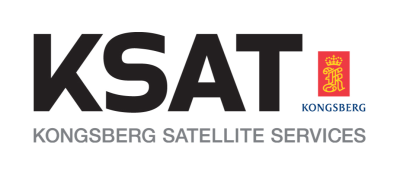DGI 2026
23 - 25 February 2026
Queen Elizabeth II Centre, London
Maritime Intelligence
Maritime Intelligence and Geospatial Intelligence Interview
Geospatial Intelligence and the Importance of Maritime
When you think of geospatial intelligence, the usual thing that comes to mind is land-based – satellite images of strategically important military sites, but one area that is commonly overlooked is that of maritime intelligence, of which geospatial is playing an increasingly important role, being used in law enforcement and humanitarian missions, giving them greater insight than ever before.
One man pushing the boundaries of what is being achieved at sea, geospatially speaking, is Guy Thomas, Science & Technology Advisor to the US Coast Guard. We spoke to him at DGI 2012 to find out just how geospatial tech is playing a critical role at tying together the global intelligence picture in a way never before possible.
Video transcript:
What has brought you down to DGI and what have you been speaking about so far?
I work for the Coast Guard; that’s a maritime organisation. We’re interested in how these kinds of capabilities can be used better in our mini-mission sets that we have, and we’re also looking at a concept called ‘Collaboration in Space for International Global Maritime Awareness’, CSIGMA, which we have been generating a good deal of discussion now over the last couple of years as how we could implement a global maritime awareness system.
I know it’s been a big talking point for a lot of people, so how is that coming along?
Yes, indeed. The technology, I think, is in hand. We’ve had half a dozen different tests from various people. The European Union ran some tests, we’ve run some tests as well as companies such as IGEOSS and KSAT. We believe we have the technology well in hand; we need to figure out how to move this forward on the global stage because the maritime problem is a global problem. The United States fully recognises that we cannot do that by ourselves; we need to collaborate.
In many ways, it’s the maritime that ties up the land; that without that enormous piece of the puzzle, there’s nowhere you can really say what’s going on in one part of the world and how it connects, particularly when it comes to areas such as counter-terrorism, environmental protection… As a matter of fact, there’s human assistance disaster relief; I believe you need to add ‘EP’ on to it. ‘HADR’ is the term; it’s ‘HADREP’, ‘environmental protection’. It’s one of the things that our disaster in Deepwater Horizon in the Gulf of Mexico taught us, is that we didn’t have really a good handle on how to bring this kind of capability to bear on that problem, which is highly pertinent. We finally got it done about the time the programme went away and we’ve let that atrophy again; we need to figure out how to build that again.
And technology is moving so quickly forward. We need to stay on top of it; that’s kind of my job. I’m kind of the techno-scout for the Coast Guard, in a way.
So what are the Coast Guard bringing to the table?
Well, they bring together a highly efficient, highly trained, highly motivated task force of real experts in many different areas.
I was a Navy guy for many years, but I’m really impressed with the quality of the people I work with in the Coast Guard. But their technology is not leading edge and they recognise it needs to be.
How far do you think or how long do you think it will be before they’ve caught up with at least what it is available now?
It’s a moving train; that’s why you have people like me out there trying to figure out which way to point the train.
This has been one of the big talking points, throughout the whole event; that it’s much as much to do with the people skills: how we take that technology, how we use it, how we apply it and how we bring it all together. You may have heard me several times mention, “Don’t forget the Maritime Domain, don’t forget law enforcement and HADREP.” Those are unclassified systems; you’ve heard me kick several people in the shin, about how people here are talking about a war, and that’s certainly a valid thing to think about, but don’t put it behind the black door. If you put it behind the black door, it can’t be used by your disaster relief people, your NGOs, etc.
Is recognition of maritime geospatial intelligence an issue?
Not really an issue; It’s not an intelligence situation, so much as what’s out there - how do we task it, how do we use it and how do we get our access to it?
And you certainly have civil rights: you have people’s privacy that you need to respect at the same time and so we have those issues as well.
And how close are we to resolving them? Do you think we’ll ever resolve them?
I think it’s another moving train. I’m probably going to stay and my children are going to stay invested in this, working on this forever and ever, but it’s a very worthy project; it’s certainly something that many of us are deeply engaged in and I’m proud to be part of it.
What would you say are the key challenges to the ‘true’ interoperability that we’re trying to achieve?
Political will in this restrained-in-budget environment. If we had a wide-open budget environment, this would have been solved already, but where does it fall? People do not believe, I believe, that there are the threats out there, that I personally do, from counter-narcotics, problems that I’ve mentioned a couple of times, smuggling of all sorts, human, contraband, pollution. There are people that pollute our oceans today and need to be detected more forcefully.

































































